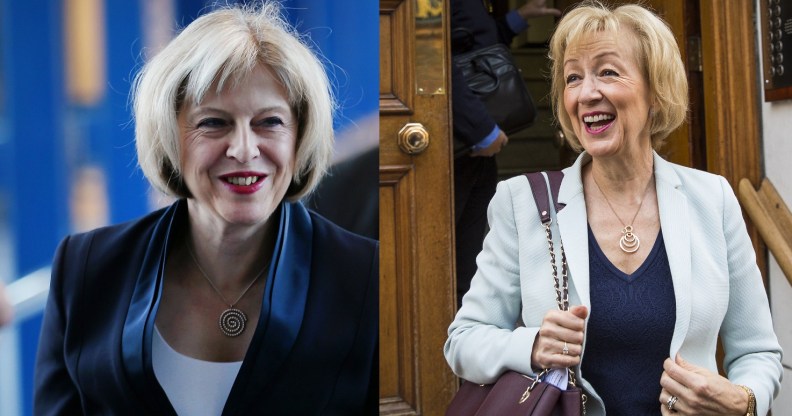Theresa May will face Andrea Leadsom in Tory PM election ballot as Gove loses out

Theresa May has maintained a commanding lead in the race to succeed David Cameron as Prime Minister – with Justice Secretary Michael Gove eliminated from the running by Andrea Leadsom.
The candidates are vying for the position as leader of the UK Conservative Party, after David Cameron announced his resignation in wake of the EU referendum.
As the Conservatives hold a majority in Parliament, the winner of the race – which is decided by Tory MPs and Conservative Party members – will automatically become Prime Minister in September
In the final round of voting among the party’s MPs today, Home Secretary Theresa May maintained a large lead.
But Justice Secretary Michael Gove, himself a surprise entrant into the race, was bested by right-winger Andrea Leadsom, eliminating Mr Gove from the race.

Theresa May received 199 votes, Ms Leadsom 84, and Mr Gove 46. Stephen Crabb and Dr Liam Fox were eliminated in an earlier round of voting on Tuesday. The two remaining candidates will now go through to a ballot of party members.
Ms Leadsom claimed previously in blog posts that straight adoptive parents should have priority over gay couples in the adoption process.
The MP came under fire today after saying in an interview she “didn’t like” same-sex marriage law – claiming it “harms” Christians.
She said: “I would have preferred for civil partnerships to be available to heterosexual and gay couples, and for marriage to have remained as a Christian service for men and women who wanted to commit in the eyes of God.”
Home Secretary Theresa May has a mixed historic record on LGBT rights, though she has become a supporter of equality under David Cameron.
Under Iain Duncan Smith’s leadership, Mrs May obeyed the Tory whip to vote against many early reforms, including an equal age of consent and same-sex adoptions – even when others including George Osborne and Boris Johnson rebelled.
In 2004 under leader Michael Howard, she voted in favour of civil partnerships and under David Cameron’s leadership, it was Mrs May who helped ensure that proposals for equal marriage made it onto the agenda – promising a review ahead of the 2010 election, and in government working alongside Lib Dem Lynne Featherstone to secure Coalition-wide agreement.
Baroness Featherstone, the architect of the equal marriage law, has since said that May’s support was instrumental in convincing the Conservative leadership to agree to the Lib Dem proposal.
But Mrs May has faced criticism on other issues. A review of the treatment of LGBT asylum seekers was carried out by the Home Office in 2014, but the Home Secretary has since been criticised by asylum groups, who say that in some ways conditions have worsened under her tenure.
She also mooted plans to withdraw from the European Convention of Human Rights, which guaranteed some of the UK’s earliest LGBT rights protections. The Home Secretary ditched the “divisive” plan as she launched her leadership bid.

